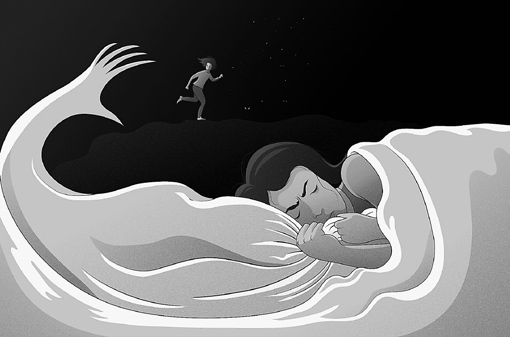
IF you’ve ever had trouble falling asleep at night, chances are someone has recommended that you try melatonin. This over-the-counter supplement can help regulate your sleep-wake cycle when taken about an hour before bed. But while melatonin is popular, it could also have some unintended side effects. One of the more surprising side effects of taking melatonin? Nightmares. Melatonin can help you fall asleep faster, but according to Lisa Medalie, a board-certified behavioral sleep medicine specialist in the United States, it can also cause you to stay in the deeper stages of sleep longer, which could open the door for more vivid or intense dreams. “Most people take melatonin because they are experiencing difficulty falling asleep, returning to sleep, or insufficient sleep,” said Medalie. If you’re struggling with any of those things, chances are you’re not sleeping long enough to experience periods of rapid eye movement (REM) sleep. “If melatonin is helpful and keeps such individuals asleep for longer, they may then actually experience longer and possibly higher-density REM sleep,” Medalie explained. “With longer bouts of REM from longer sleep periods — and even more likely, with higher-density REM sleep — this allows for the potential of more vivid or intense dream content, as dreams occur during REM sleep.” REM sleep is a time when we process our unresolved emotions in support of healthy social and emotional functioning. Dreams are a time when we can be exposed to fear-inducing stimuli in a safe environment. So, while melatonin itself isn’t necessarily to blame for your nightmares, the deep sleep it allows you to have could be setting the stage for these dreams. If you suspect melatonin is the cause of your nightmares, consider trying some alternative techniques to help you fall asleep. Kristen Willeumier, a neuroscientist, recommends establishing a consistent sleep schedule, exercising regularly, refraining from eating three hours prior to sleep, avoiding caffeine and beverages after 3 p.m., abstaining from alcohol before bed, dimming the lights in the evenings, using filters to block blue light from computer screens and smartphones, and keeping your bedroom temperature cool.(SD-Agencies) | 
